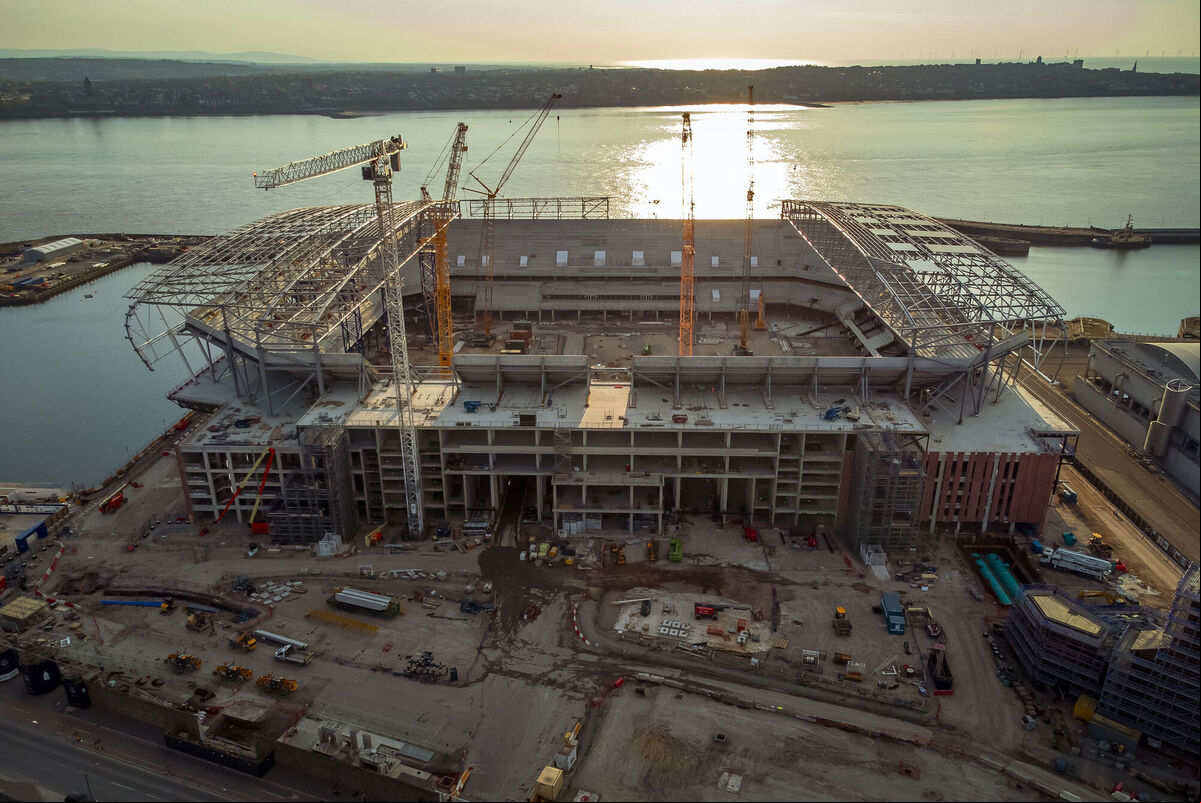Premier League: Everton look like the fall-guys for league's failings

Everton manager Sean Dyche has the unenviable job of having to lead Everton back from the deduction of 10 points for breaches of FFP rules by the Premier League. Picture: Peter Byrne/PA Wire.
IF YOU asked any Premier League observer which club would likely face a 10-point deduction for breaching the league’s Financial Fair Play (FFP) regulations this season? I’d wager that Everton would have been well down the list of likely culprits.
But out of the blue, the Merseyside club was last weekend slammed with an unprecedented points punishment from the Premier League, that saw them knocked from 13th place in the Premier League to 19th spot, just one spot from bottom.
And so, a club that fought to the very last day for the past two seasons to stay in the division, has now been firmly thrown into the relegation quagmire again and yet another fight to preserve their record 69-year run in English top-flight football.
Last Friday, the findings of an independent commission where disclosed stating that Everton suffered a loss of £19.5m (€22m) more than the £105m (€120m) that Premier League clubs are allowed to lose as part of the FFP over a three-year period.
Everton will appeal the decision and have until December 1 to submit their objection to the findings. The Premier League will then have seven days to respond to the appeal before it goes to another independent appeals commission.
So, rules are rules and if Everton have genuinely been caught in the wrong then they probably should face the consequences. Right?
The problem with that steadfast attitude is that the rules and the concept of financial fair play have long been seen as a concept rather than a hardened rule by many clubs.

A 10-point deduction for a £19.5m infringement seems rather harsh in a league that regularly deals in billions of pounds and where other clubs could easily dispose of such a financial discrepancy with some appropriate ing acrobatics.
What makes Everton’s punishment seem all the harsher, is that the club’s spending seemed to be geared at trying to survive rather than just the pursuit of glory and silverware, the accusation used against some other sides in the division.
Added to the regular financial woes all clubs face, Everton are in the middle of building a new stadium at probably the worst possible time, as interest rates on their loans for the building rockets, all the time while building materials and wages soar in the fallout of war in Ukraine and even Brexit.

This is not to say that Everton’s ‘crime’ is totally victimless. The excess money they spent may have been the difference for them to escape the drop, while Leeds and Leicester, who played fair, fell through the relegation trapdoor to the Championship at the same time.
Still, one just can’t help feeling that in this punishment, it is one law for poorer sides and another one for financial elites.
The biggest indication that something is wrong with the financial comings and goings of the nouveau riche clubs comes from their financial histories. How could clubs that struggled to survive with their day-to-day finances for most of their existence suddenly become financial behemoths soon as a rich sugar daddy or fossil fuel oligarch takes ownership?
Suddenly these clubs had turnovers not only bigger than the traditional juggernauts like Man United, within their own league, but also bigger than the likes of Real Madrid who have since been shown to have their own financial irregularities.
Fans of these clubs would say that financial success comes with success on the field. But it must be ed that their financial turnaround was almost instantaneous unlike the decades of success and rebuilding that defines the traditional large clubs.
It must also be pointed out that Chelsea still play in one of the smaller stadiums in the league, while there is a social media trope that derides Man City’s many empty seats over the years despite their growing success. Nevertheless, their seems to show their incomes match and even sur their huge outflows on transfers and wages.
To clarify things, Chelsea have not been charged with anything but are being investigated, while Man City’s 115 cases of FFP irregularities have yet to lead to any finding of guilt, so far, at local or European level.
But for many, that has more to do with the authorities unwilling to face the consequences of sanctioning these successful sides, and the subsequent fallout for the rest of the league and who can claim silverware. Slamming Everton with point deductions, however, has the virtue of fewer repercussions while signalling that the Premier League takes Financial Fair Play seriously.










 App?
App?







